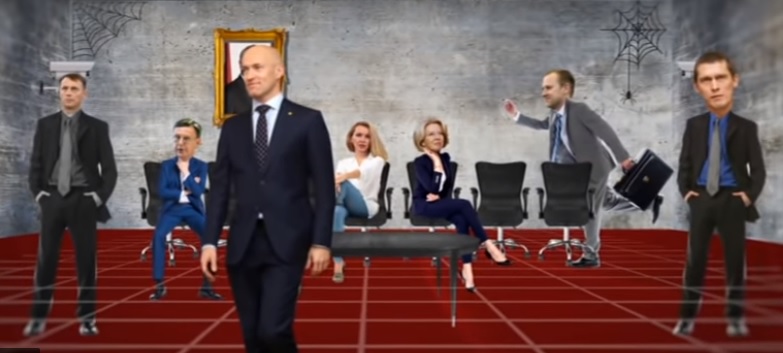Though a couple of meetings of the NDK have taken place since Saeima elections in October 2018, they have not been able to discuss classified matters as several members of the committee are still waiting to receive clearance from the security services that would give them the right to view classified material.
Meetings of the NDK are known to take place every week on Wednesdays, but no agenda is published. One of the purposes of the NDK is oversight of the security services.
At the first meeting of the NDK under the new Saeima, former Prime Minister Maris Kučinskis (Greens and Farmers Union party) was elected Chairman. Having just been PM for nearly 3 years, there is no doubt about his security clearance. Similarly Saeima chairwoman or speaker Ināra Mūrniece (National Alliance) has the highest-level clearance or she would not have been able to take up her job and act as deputy for the President when required.
Saeima deputy Inese Lībiņa-Egnere (New Unity) also has the necessary security clearance, but the situation regarding the other four members of the committee is less clear. The four in question are Daniels Pavļuts (Development/For!), Valerijs Agešins (Harmony), Juris Jurašs (New Conservatives) and Aldis Gobzems (KPV LV) and are still awaiting security clearance.
As a former minister himself and more recently an adviser to the Foreign Ministry, Pavļuts might be expected to obtain clearance and Agešins is a long-time MP, though other members of his Harmony party have in the past had problems obtaining clearance. Perhaps the biggest question marks concern Jurašs, who is the target of attempted charges from the Prosecutor General in connection with whistleblowing, and Gobzems, the former prime ministerial candidate.
MPs are due to rule this week on whether they will allow parliamentary immunity to be lifted to allow former anti-corruption cop Jurašs to face charges in what has become a bitter dispute between him and Prosecutor General Eriks Kalnmeiers.
If MPs agree to allow Jurašs' prosecution, he will not be able to participate in the work of the Saeima. On the other hand, if MPs back him, he will still need to await security clearance.
As for Gobzems, his suitability for security clearance has been widely discussed ever since his emergence onto the political scene last year. However, he told LTV's De Facto he felt it was "only a matter of time" before he is granted clearance.
Agešins told the show he had never had problems with clearance in his 15 year career as a parliamentarian and that he assumed the wait for clearance this time around was due to the large number of new deputies elected to Saeima, meaning the security services have their hands full "Given the large number of members elected for the first time, I assume that the checks could take longer than usual," he said.
The chairman of the committee, Kučinskis said that the work of the committee had not been greatly affected as so far there has been no urgent business under consideration.
"At the moment I can say that everything is fine. The prime minister has been informed of everything, and if necessary I have the ability to convene a meeting with or without clearance. At the moment, there is no need," said Kučinskis.
The law requires three months to determine if someone can or cannot be granted special permission to work with a state secret. However, the deadline can be extended for another three months, if there is deemed to be sufficient justification.
The NDK is only one of the state structures dealing with secret material and is not to be confused with the National Security Council (NDP) which is convened by the President, and which also contains Mūrniece and Kučinskis among its number and to which the Prosecutor General also has a right to participate.





























